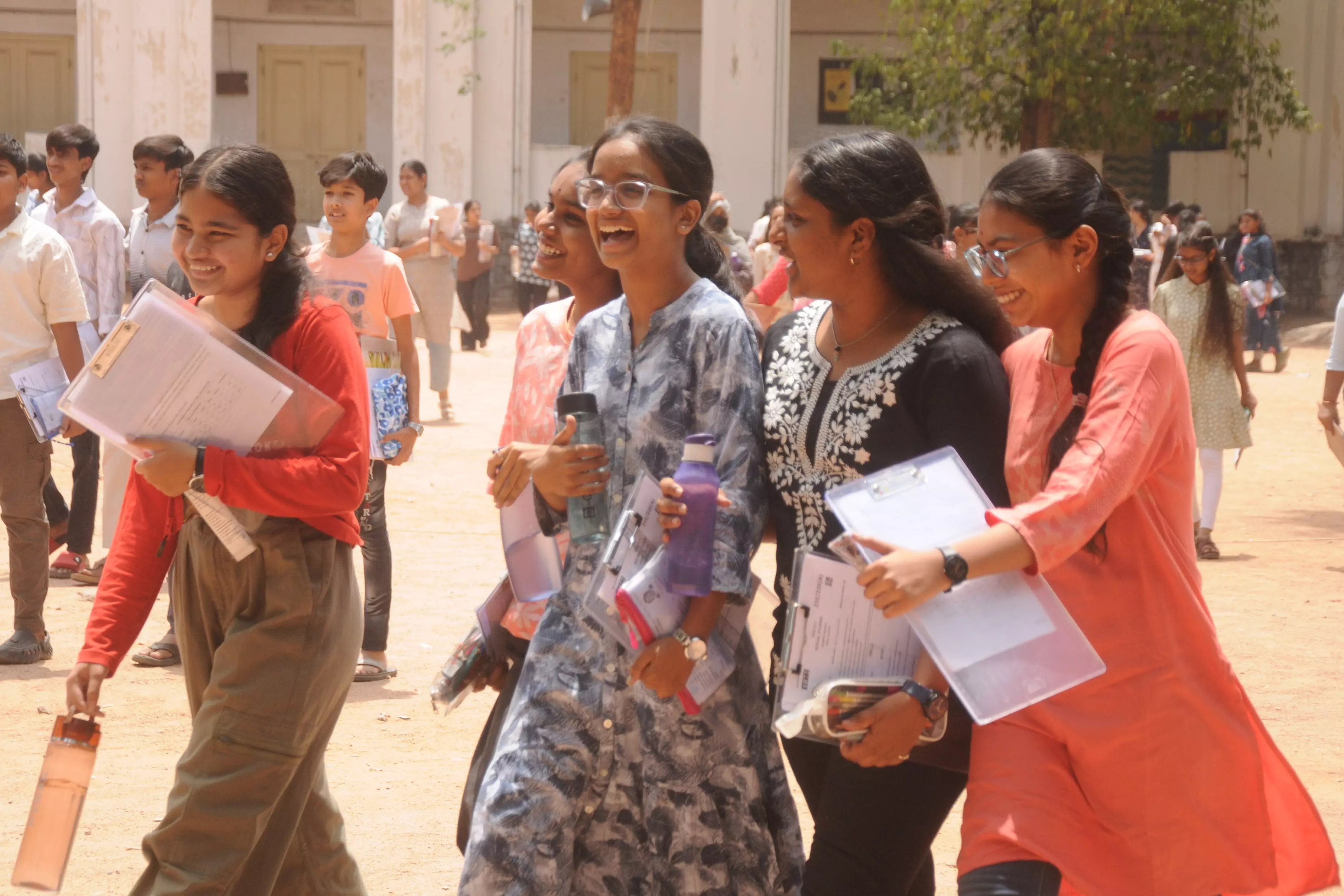Photo by Rendy Novantino on Unsplash Woman in grey jumper texting. According to the software and technology experts at Cloudflare, Generative AI services grew in popularity by 251% between February 1, 2024, and March 1, 2025. This isn’t surprising, really.
People are using it for everything from writing job applications to replacing what would have been a Google search. While this is interesting to say the very least, there are some trends that are a little concerning. Advertisement One that I had noticed a lot on TikTok was users admitting to relying on Open AI’s generative AI chatbot Chat GPT to provide therapy services.

One user gained 3 million likes with her post saying: “My favourite animal is me using Chat GPT as a therapist.” @ruehalloway i use it everyday #fyp #chatgpt ♬ Classic classical gymnopedie solo piano(1034554) - Lyrebirds music Of course, this is understandable. According to an analysis of NHS data by charity Rethink Mental Illness , eight times as many people are still waiting for mental health treatment after 18 months compared to physical health care.
Advertisement At a time of crisis like this, who can blame people for reaching for tools at their disposal? However, according to psychotherapist James Lloyd , this could be harmful to those seeking mental health support. Psychotherapist urges against using chatbots for mental health support Lloyd says: “Technology can be incredibly helpful, especially when it helps someone take the first step toward opening up. “In that way, using a chatbot might act as a bridge, an easier entry point when speaking to another person feels too hard.
But it’s also worth remembering the old adage: fire is a great tool, but a terrible master.” Advertisement Lloyd also urges that this kind of reliance could lead to us actually harming our overall health. “If we become too reliant on AI for emotional support, we may unintentionally lose touch with the kinds of human interactions that are vital for our wellbeing.
“Social connection remains one of the strongest predictors of long-term physical and mental health. As helpful as technology can be, there’s likely a ceiling it hits – a limit that only real human-to-human engagement can surpass.” A study by Harvard University in 2024 revealed that social connection can help people live longer and healthier lives.
Advertisement Researchers wrote: “Being socially disconnected, for example, is associated with higher risk of illnesses, including heart disease, stroke, anxiety, depression , and dementia. “Loneliness and social isolation have also been shown to increase the risk for premature death by 26% and 29% respectively.” Lloyd agrees that we need a touch of humanity to really thrive, adding: “True therapeutic work, as well as healing loneliness, often involves being seen, heard, and felt by another person in a way that AI, however advanced, just can’t replicate.
” Advertisement HuffPost UK reached out to Open AI for comment and the AI experts said: “Our models are trained to act as an AI system and offer general advice and support. Users will receive a message like the image below if they are requesting professional advice:” Chat GPT by OpenAI They added: “In the event that someone is at risk to themselves, we’ve trained our models to recognise these situations and engage thoughtfully as well as redirecting people to professional help where needed. Advertisement “You can read more about that in our Model Spec here and here .
We are continuing to invest in this area by consulting with mental health experts.” Help and support: Mind , open Monday to Friday, 9am-6pm on 0300 123 3393 . Samaritans offers a listening service which is open 24 hours a day, on 116 123 (UK and ROI - this number is FREE to call and will not appear on your phone bill).
CALM (the Campaign Against Living Miserably) offer a helpline open 5pm-midnight, 365 days a year, on 0800 58 58 58 , and a webchat service . The Mix is a free support service for people under 25. Call 0808 808 4994 or email help@themix.
org.uk Rethink Mental Illness offers practical help through its advice line which can be reached on 0808 801 0525 (Monday to Friday 10am-4pm). More info can be found on rethink.
org . Related Mental Health loneliness I'm A Mental Health Expert - These Are 10 Tips To Get The Most From Your First Therapy Session The No. 1 Sign Of High-Functioning Depression People Often Miss The 1 Thing Therapists Say Harms Your Happiness The Most.
Is Using AI For Therapy Actually Just Making Us Lonelier?

Rendy Novantino on Unsplash" />Woman in grey jumper texting.According to the software and technology experts at Cloudflare, Generative AI services grew in popularity by 251% between February 1, 2024, and March 1, 2025.This isn’t surprising, really. People are using it for everything from writing job applications to replacing what would have been a Google search. While this is interesting to say the very least, there are some trends that are a little concerning. One that I had noticed a lot on TikTok was users admitting to relying on Open AI’s generative AI chatbot Chat GPT to provide therapy services. One user gained 3 million likes with her post saying: “My favourite animal is me using Chat GPT as a therapist.”@ruehallowayi use it everyday #fyp#chatgpt♬ Classic classical gymnopedie solo piano(1034554) - Lyrebirds musicOf course, this is understandable. According to an analysis of NHS data by charity Rethink Mental Illness, eight times as many people are still waiting for mental health treatment after 18 months compared to physical health care. At a time of crisis like this, who can blame people for reaching for tools at their disposal?However, according to psychotherapist James Lloyd, this could be harmful to those seeking mental health support.Psychotherapist urges against using chatbots for mental health supportLloyd says: “Technology can be incredibly helpful, especially when it helps someone take the first step toward opening up.“In that way, using a chatbot might act as a bridge, an easier entry point when speaking to another person feels too hard. But it’s also worth remembering the old adage: fire is a great tool, but a terrible master.”Lloyd also urges that this kind of reliance could lead to us actually harming our overall health.“If we become too reliant on AI for emotional support, we may unintentionally lose touch with the kinds of human interactions that are vital for our wellbeing.“Social connection remains one of the strongest predictors of long-term physical and mental health. As helpful as technology can be, there’s likely a ceiling it hits – a limit that only real human-to-human engagement can surpass.”A study by Harvard University in 2024 revealed that social connection can help people live longer and healthier lives.Researchers wrote: “Being socially disconnected, for example, is associated with higher risk of illnesses, including heart disease, stroke, anxiety, depression, and dementia.“Loneliness and social isolation have also been shown to increase the risk for premature death by 26% and 29% respectively.” Lloyd agrees that we need a touch of humanity to really thrive, adding: “True therapeutic work, as well as healing loneliness, often involves being seen, heard, and felt by another person in a way that AI, however advanced, just can’t replicate.”HuffPost UK reached out to Open AI for comment and the AI experts said: “Our models are trained to act as an AI system and offer general advice and support. Users will receive a message like the image below if they are requesting professional advice:” They added: “In the event that someone is at risk to themselves, we’ve trained our models to recognise these situations and engage thoughtfully as well as redirecting people to professional help where needed.“You can read more about that in our Model Spec here and here. We are continuing to invest in this area by consulting with mental health experts.”Help and support:Mind, open Monday to Friday, 9am-6pm on 0300 123 3393.Samaritans offers a listening service which is open 24 hours a day, on 116 123 (UK and ROI - this number is FREE to call and will not appear on your phone bill).CALM (the Campaign Against Living Miserably) offer a helpline open 5pm-midnight, 365 days a year, on 0800 58 58 58, and a webchat service.The Mix is a free support service for people under 25. Call 0808 808 4994 or email [email protected] Mental Illness offers practical help through its advice line which can be reached on 0808 801 0525 (Monday to Friday 10am-4pm). More info can be found on rethink.org.Related...I'm A Mental Health Expert - These Are 10 Tips To Get The Most From Your First Therapy SessionThe No. 1 Sign Of High-Functioning Depression People Often MissThe 1 Thing Therapists Say Harms Your Happiness The Most











